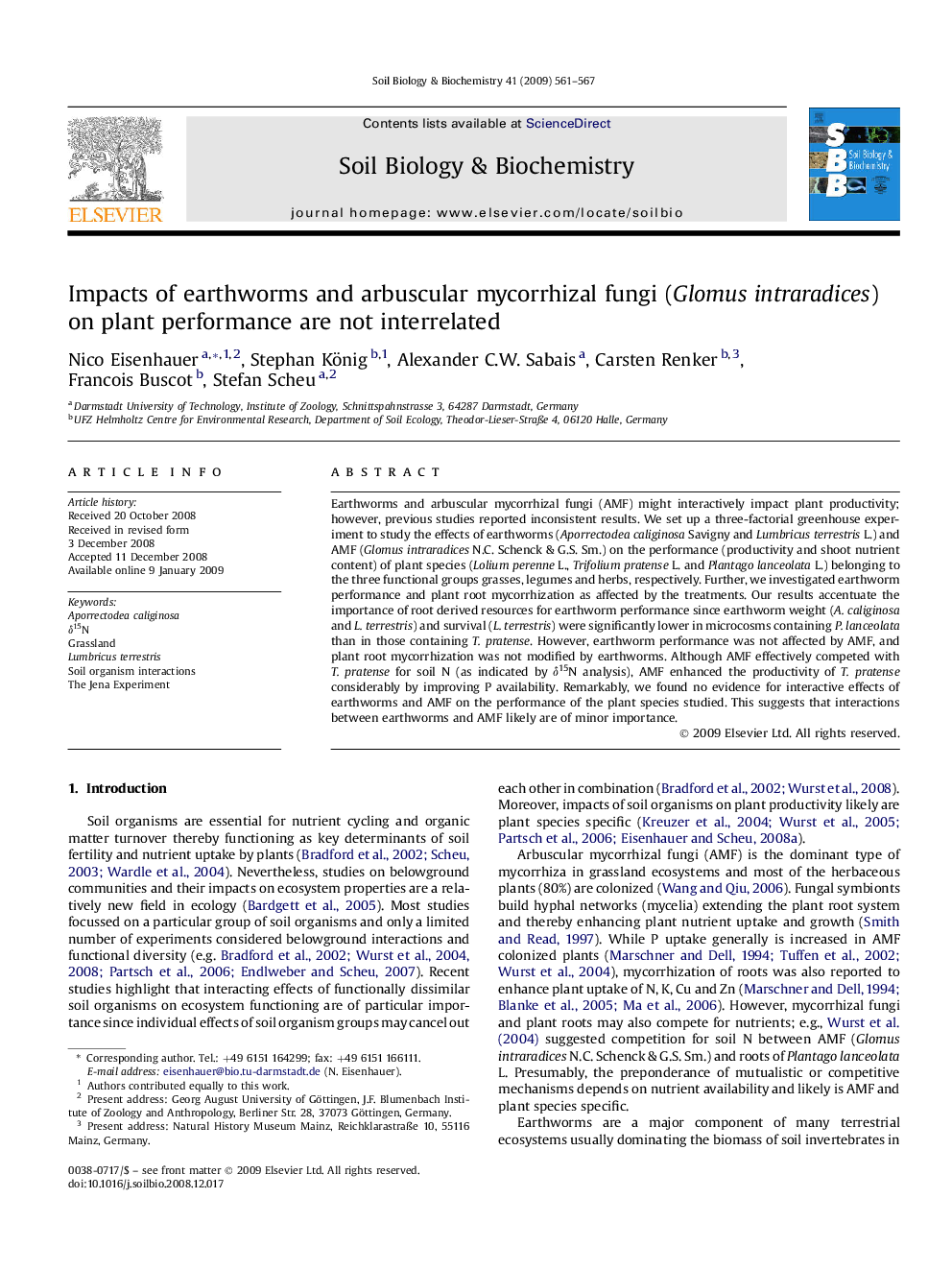| Article ID | Journal | Published Year | Pages | File Type |
|---|---|---|---|---|
| 2026727 | Soil Biology and Biochemistry | 2009 | 7 Pages |
Earthworms and arbuscular mycorrhizal fungi (AMF) might interactively impact plant productivity; however, previous studies reported inconsistent results. We set up a three-factorial greenhouse experiment to study the effects of earthworms (Aporrectodea caliginosa Savigny and Lumbricus terrestris L.) and AMF (Glomus intraradices N.C. Schenck & G.S. Sm.) on the performance (productivity and shoot nutrient content) of plant species (Lolium perenne L., Trifolium pratense L. and Plantago lanceolata L.) belonging to the three functional groups grasses, legumes and herbs, respectively. Further, we investigated earthworm performance and plant root mycorrhization as affected by the treatments. Our results accentuate the importance of root derived resources for earthworm performance since earthworm weight (A. caliginosa and L. terrestris) and survival (L. terrestris) were significantly lower in microcosms containing P. lanceolata than in those containing T. pratense. However, earthworm performance was not affected by AMF, and plant root mycorrhization was not modified by earthworms. Although AMF effectively competed with T. pratense for soil N (as indicated by δ15N analysis), AMF enhanced the productivity of T. pratense considerably by improving P availability. Remarkably, we found no evidence for interactive effects of earthworms and AMF on the performance of the plant species studied. This suggests that interactions between earthworms and AMF likely are of minor importance.
